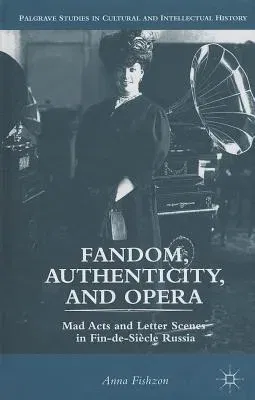A Fishzon
(Author)Fandom, Authenticity, and Opera: Mad Acts and Letter Scenes in Fin-De-Siècle Russia (2013)Hardcover - 2013, 18 September 2013

Qty
1
Turbo
Ships in 2 - 3 days
In Stock
Free Delivery
Cash on Delivery
15 Days
Free Returns
Secure Checkout

Part of Series
Palgrave Studies in Cultural and Intellectual History
Print Length
273 pages
Language
English
Publisher
Palgrave MacMillan
Date Published
18 Sep 2013
ISBN-10
1137023449
ISBN-13
9781137023445
Description
Product Details
Author:
Book Edition:
2013
Book Format:
Hardcover
Country of Origin:
US
Date Published:
18 September 2013
Dimensions:
21.84 x
14.22 x
2.03 cm
ISBN-10:
1137023449
ISBN-13:
9781137023445
Language:
English
Location:
New York
Pages:
273
Publisher:
Weight:
453.59 gm